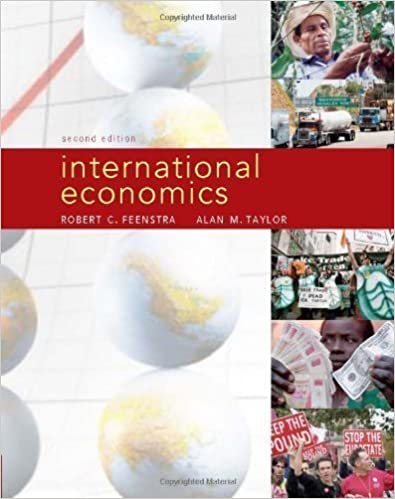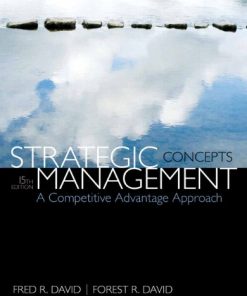International Economics Second Edition By Feenstra – Test Bank
$55.00
International Economics Second Edition By Feenstra – Test Bank
You will receive this product within 24 hours after placing the order
International Economics Second Edition By Feenstra – Test Bank
Overview
“International Economics” is a comprehensive textbook written by Robert C. Feenstra, now in its second edition. It provides an in-depth exploration of the theories, principles, and policies that govern international economic interactions. The book delves into the fundamental concepts of international trade and finance, examining the causes and consequences of global economic integration.
The second edition of “International Economics” builds upon the success of the first edition, incorporating updated data, recent research, and emerging trends in the field. The book encompasses a wide range of topics, offering a thorough analysis of both trade and finance aspects of the global economy. Here is a brief overview of the main themes covered in the book:
- Comparative Advantage and the Gains from Trade: The book begins by introducing the concept of comparative advantage, exploring how countries specialize in the production of goods and services. It discusses the economic benefits of international trade, including the gains from specialization and the potential for mutually beneficial exchanges.
- Trade Policy: Feenstra examines various trade policies, including tariffs, quotas, and subsidies, and their impact on domestic and international markets. The book discusses the role of trade agreements, such as the World Trade Organization (WTO), and their effects on global trade patterns.
- Trade and Labor Markets: The book analyzes the effects of international trade on labor markets, considering issues such as outsourcing, offshoring, and the impact on wages and employment. It also explores the relationship between trade, inequality, and poverty.
- Trade and Economic Growth: Feenstra explores the relationship between international trade and economic growth, investigating how trade can stimulate productivity, innovation, and technological progress. The book discusses the role of multinational corporations and foreign direct investment in promoting economic development.
- International Finance and Exchange Rates: The book covers the principles of international finance, including balance of payments, exchange rates, and the determinants of international capital flows. It examines the causes and consequences of currency crises and financial globalization.
- International Monetary System: Feenstra explores the functioning of the international monetary system, discussing the role of central banks, exchange rate regimes, and the challenges of monetary policy coordination. It also analyzes the impact of monetary policy on international trade and finance.
- International Trade and Policy in Imperfectly Competitive Markets: The book goes beyond the traditional models of perfect competition, addressing the implications of imperfect competition and market power in international trade. It examines topics such as strategic trade policy and the role of multinational corporations in global markets.
Throughout the book, Feenstra provides numerous real-world examples, case studies, and data-driven analysis to illustrate the concepts and theories discussed. The second edition of “International Economics” offers a comprehensive and up-to-date resource for students, researchers, and professionals seeking to understand the complexities of the global economy and the challenges and opportunities of international economic interactions.











Reviews
There are no reviews yet.